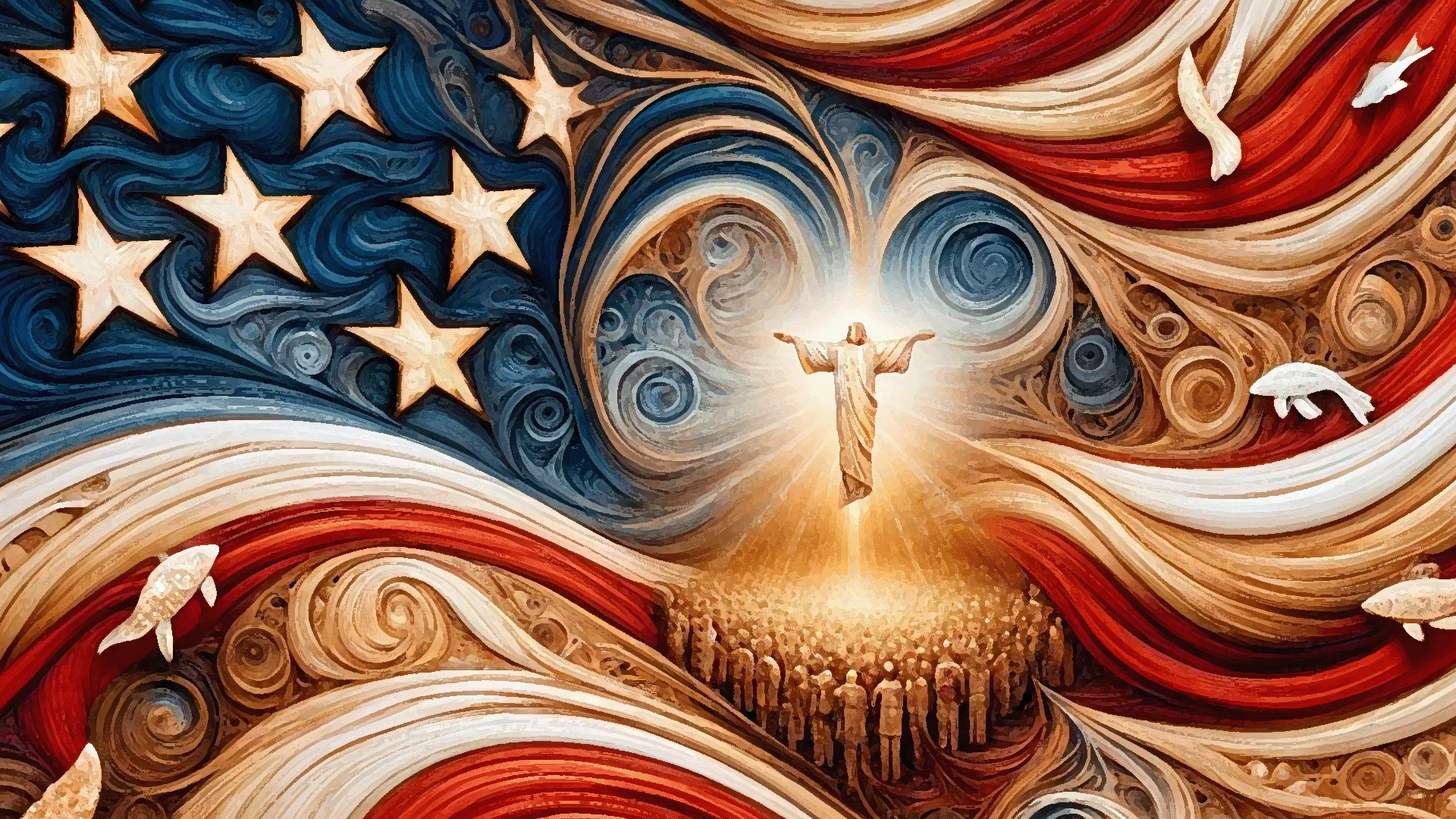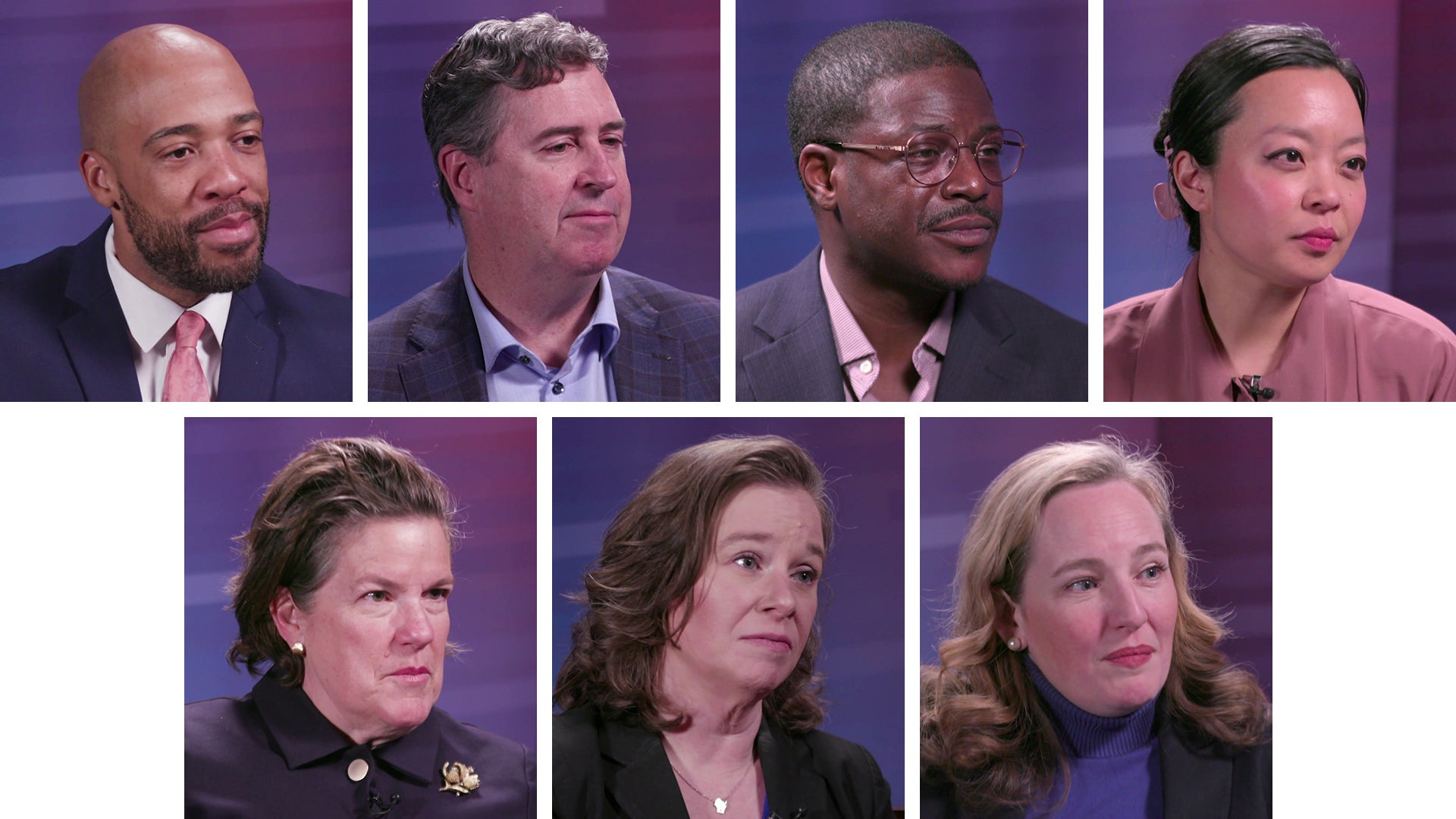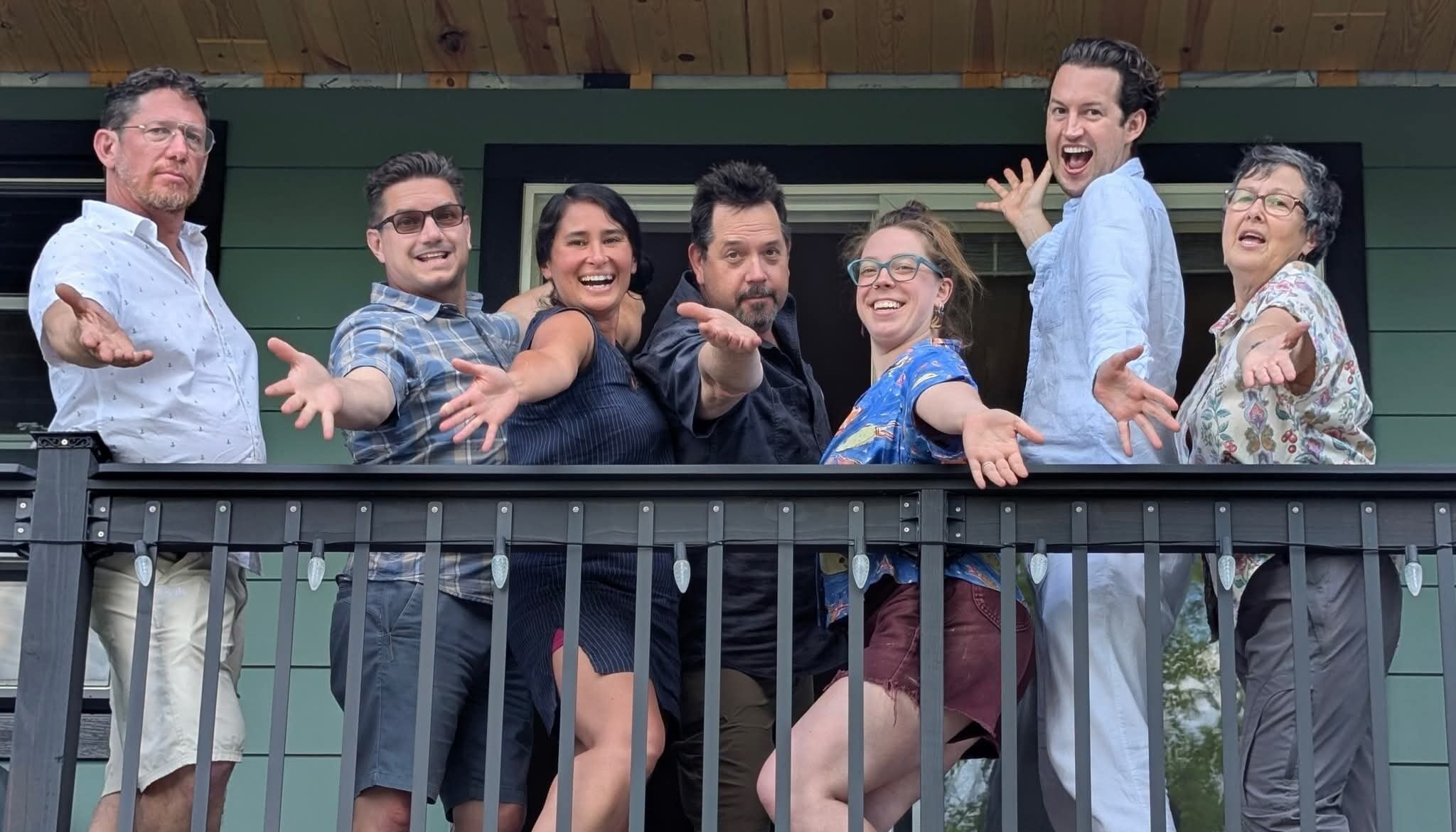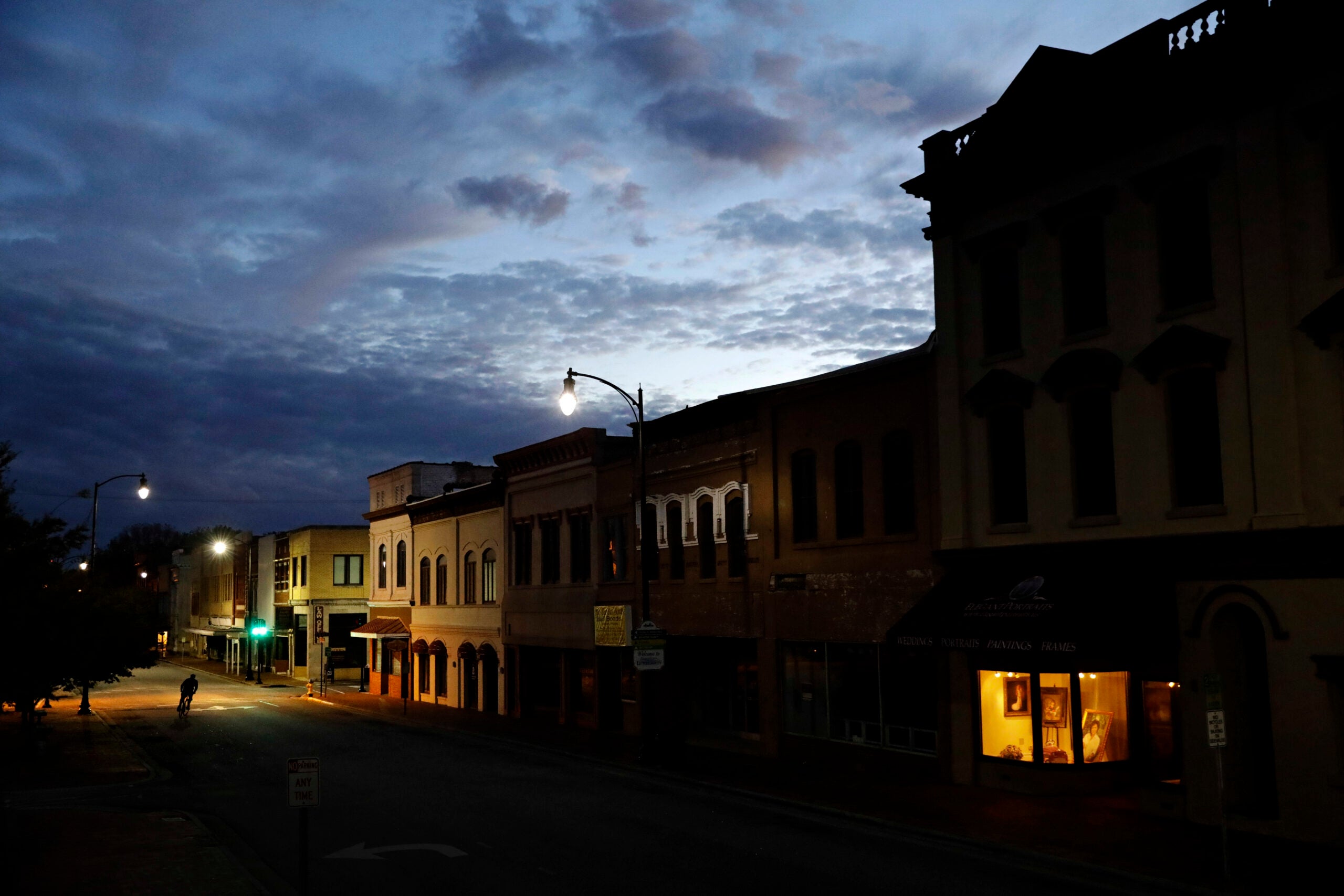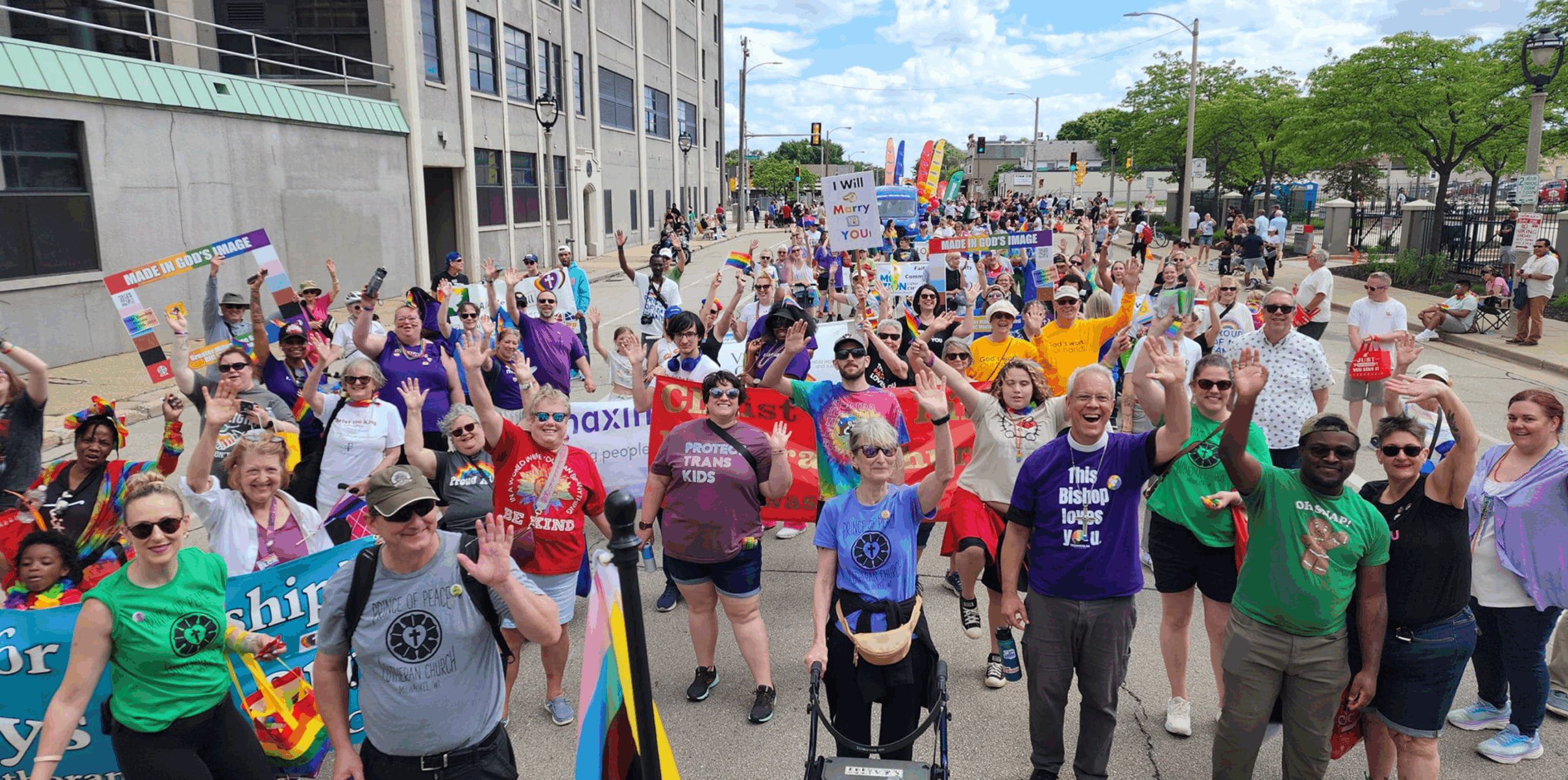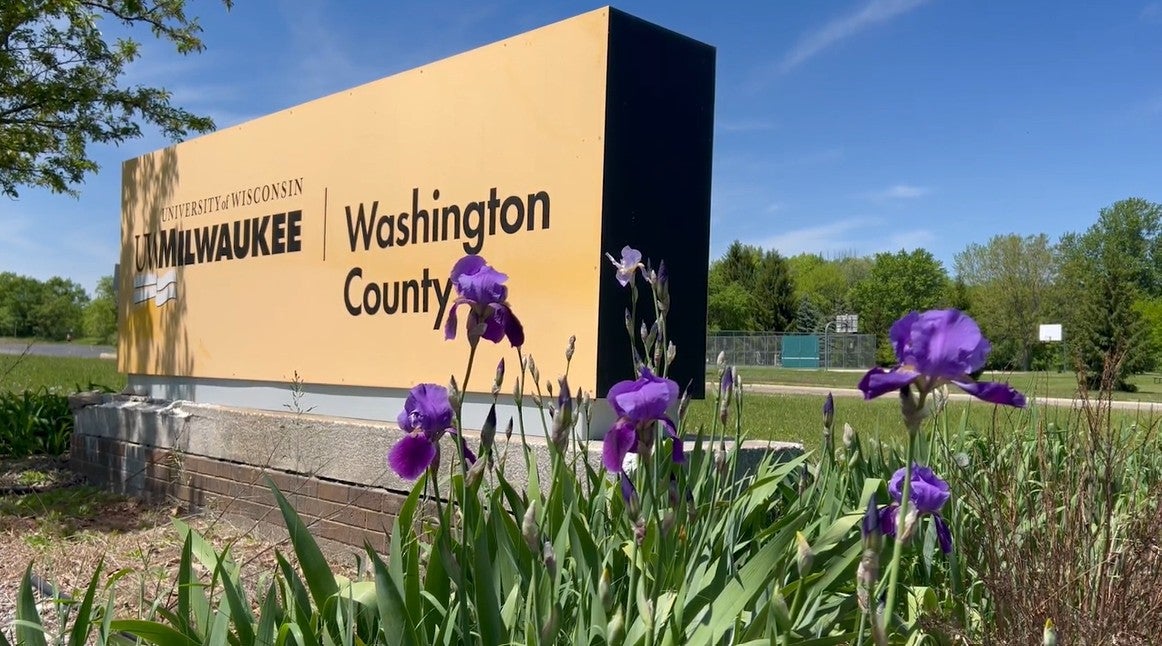For some Americans, Jan. 6 was a wake-up call. For others, a rallying cry. But let’s not forget that people died — police officers and protesters in the crowd.
It was an unprecedented day of political violence for the United States. Can it happen again? Will the next showdown be bigger? And how do we make sense of the apocalyptic rhetoric of Christian nationalism that inspired so many of the insurrectionists?
Journalist Jeff Sharlet is a professor of English and creative writing at Dartmouth College, and the author of “The Undertow: Scenes from a Slow Civil War.”
News with a little more humanity
WPR’s “Wisconsin Today” newsletter keeps you connected to the state you love without feeling overwhelmed. No paywall. No agenda. No corporate filter.
He said the great match thrower of our time is former president Donald Trump. His rhetoric — Sharlet argues — incited actual violence on Jan. 6. But lately, Trump’s speeches have taken a surprising turn. He’s now explicitly appealing to Christians — especially the fears of evangelical Christians — promising to create a federal task force to investigate anti-Christian bias.
“They want to tear down crosses where they can and cover them up with social justice flags,” Trump said at the 2024 National Religious Broadcasters Association International Christian Media Convention on Feb. 22.
Trump won 84 percent of the white evangelical vote in 2020. To shore up that base, he’s now moving beyond conservative Christian values to reach out to Christian nationalists.
That appeal, Sharlet argues, represents a threat on the level of a civil war.
“I don’t think we’re going to erupt into a reprise of the 1860s, the blue versus the gray,” he said, speaking to Steve Paulson for “To The Best Of Our Knowledge.” “I think we exist in a situation of simmering violence. And I think that’s worth thinking about.”
This interview has been edited for clarity and length.
Steve Paulson: There’s a lot of fear that this country is so divided that it’s going to erupt into violence between red and blue America. I get the sense that you don’t think this is some future scenario. It’s already happening. The subtitle of your book is “Scenes from a Slow Civil War.” Are we already in a civil war?
Jeff Sharlet: I recently saw someone saying there were no political violence-related deaths in the year after 2021. And I think that has a lot to do with how you define political violence.
I’m interested in all the iconography that people adorn — their trucks, their cars, their houses, their flags, their t-shirts — threatening violence.
Almost every week somewhere, there’s a group of Proud Boys or Oath Keepers or Three Percenters or local knuckleheads, and they’re lining up outside a library, a school, sometimes a hospital, maybe it’s a drag show. Often they’re open-carrying and they haven’t opened fire. There’s a few instances where they have, actually, but mostly they haven’t opened fire.
So you say, “Well, hey, we’re fine, they haven’t opened fire.”
This is striking. We’re striking matches, right? And flicking them into the grass. So far, the fire hasn’t caught, so we’re saying, “I guess it’s fine. Let’s keep striking matches.”
SP: You’ve gone to a lot of Trump rallies. You don’t sit in the media section — the part that’s fenced off, where the crowd and Trump himself jeers at the media. You sit with the crowd. What’s that like?
JS: I’ve been a journalist for 30 years. I think I’ve had a press pass once in my life and I was ashamed. Look, it’s important for reporters to go and do those things. But it’s also important for us as writers — in this moment of authoritarian threat or even the f-word, if we want to say that this is a fascist movement — to say “how do we tell political stories?” And I think that has to do with not just paying attention to the broadcast — what the politician is saying — but the reception. How does this feel in the crowd?
Right now, the press will be put in a metal pen in the middle. And it always stunned me that my colleagues would agree to do this because Trump, a man well-versed in wrestling, would use them as a prop. There’s a moment in every rally where he says, “Look at those scum back there, the enemy, the people,” and the crowd turns around. They’re all flying the bird, two fingers up and screaming. They’re having a good time because the press is being used as what in wrestling is called “the heel.” Why they keep agreeing to be the heel, I don’t know.
But what happens when you go into the crowd? You get a much greater appreciation for Trump as a performer. You see his control, his ability to move laughter or fear.
I remember a rally I went to in Hershey, Pennsylvania, and there was a prolonged story of violence, talking about how a city like Philadelphia is deliberately releasing “undocumented illegals,” “rapists” into the countryside to terrify people and describing decapitations, disembowelment.
SP: This is all what Trump was saying?
JS: This is what Trump was saying, and it’s a horror movie. And what was the coverage of that rally? Trump made a joke about maybe he would stay for 12 more years. And that was just Trump with his fishing rod. He knew how to bait the press, that’s the line they’re going to use.
SP: Obviously you’re describing a gifted performer, but you also reject the idea that this is just theater. But it does sound like theater.
JS: It is theater. It’s not “just” theater, OK? It’s the “just” that is the reassurance to us. Don’t worry, that’s not real. Think about the most powerful performance you’ve seen. Think about the stories.
As Joan Didion said, some tell themselves stories in order to live the stories that make you who you are. That’s not “just” theater, that’s theater that’s powerful.
And if we recognize Trump — and I know this is a controversial term, and I will defend it historically — as part of a fascist movement, not a fascist regime, then theater is the essence of fascism. Not ideology. Theater and performance.
“I think that living in this very broken country, at this time of a disintegrating climate through the pandemic, has filled us all with a lot of grief. And grief that is unprocessed curdles.”
Jeff Sharlet
SP: There is pleasure in this for the people in the crowd. This is a joyful experience — the experience of playing with all of this violent imagery. And it’s also funny, I guess.
JS: Yeah. I mean, it’s ecstasy. I don’t go as press, so I wait in line. And you wait a long, long, long time. Hours and hours in a parking lot. And it’s raining. People are playing the Grateful Dead and dancing. People are getting high. There’s all the crazy merch, the merchandise … this great outflowing of creativity.
Look, I’m not saying I think this is good art. These are people constantly thinking of new designs. They take the scary Punisher skull and then they put the Trump swirl of hair on it, and then they bedazzle that, and then they put that on a pink satin coat. It’s sort of cosplay.
Then they get into the rally. I write a lot about religion, so I’m thinking about certain kinds of collaborative preachers. The “jokes” and Trump’s timing is such that — if it’s not clear by now, I’m no Trumper — I have even found myself laughing. And I’m like, that’s not funny.
SP: Let me ask you what you’re doing there. You go to Trump rallies, you go to these extremely conservative churches and hear the sermons, you hang out with QAnon followers, militia leaders with big stashes of guns, white supremacists. What are you trying to figure out?
JS: The undercurrent of “The Undertow” is grief, and grief over a number of things. And I think that living in this very broken country, at this time of a disintegrating climate through the pandemic, has filled us all with a lot of grief. And grief that is unprocessed curdles.
A lot of right wing white people have been losing some white privilege. And I think we make a mistake if we say, “Well, good, you should lose it. That’s a thing to get rid of.” But it’s still a loss.
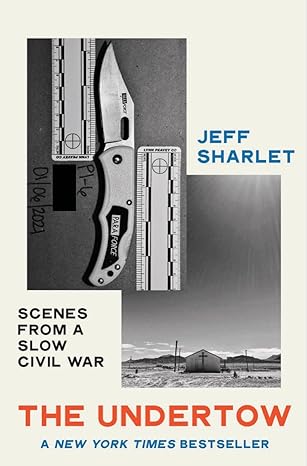
SP: You started your reporting by covering religion. You’re covering a certain brand of very conservative evangelical Christianity — maybe it’s Christian nationalism. What has changed, specifically, in that version of Christianity from then to now?
JS: Well, that term, “Christian nationalism,” is a controversial term, although less so now. Marjorie Taylor Greene says, “I’m a Christian nationalist.” More and more right wing politicians are just owning it.
Christian nationalism is different from evangelical Christianity. Most of the people I meet in this book, except for those at churches, don’t go to church. Most evangelicals line up in support. Each rally would open with some of the hardest right preachers I’ve ever seen, and people would be cheering. I would talk to the rally attendees, and they weren’t churchgoers, but they loved the idea of it.
Now, I’ve reported in Russia as well, and Russia has some of the lowest church attendance in the world. But they love Putin’s invocation of a Russian faith, the Russian Orthodox faith. That’s Christian nationalism.
When I’m out reporting on Sunday mornings, I go to churches because I want to see what’s happening. In Omaha, I visited a church called Lord of Hosts Church. The pastor, Hank Kunneman, is a regular on the show called “Flashpoint,” a Christian right show. Trump has also been a guest. I would describe it as an openly pro-hot-civil-war show. And Pastor Hank — who was a fantastic preacher, he’s good at what he does with this large and very diverse congregation — preached a civil war sermon, a violent civil war sermon. Thy rod and thy staff, he said, quoting Psalm 23. Thy rod is thy gun. And he accompanied it with a weird sexual hip thrust.
SP: This is a preacher who is just calling for violence to the whole congregation.
JS: Yeah. There are so many militia churches now. I go to a church in Yuba City, California. Wednesday night is women’s night, and Monday night is youth night. Tuesday night is militia new recruit night.
This is the church you might have seen because a little video clip of it went viral. They presented General Mike Flynn — Trump’s former national security adviser and the leader of the QAnon idea — they presented him with a customized AR-15 on stage.
What people missed was that they also presented their own pastor with a customized AR-15. His had Joshua 1:9 in Hebrew carved into it. People remember the book of Joshua. We’re going to surround the city of Jericho. We’re going to blow the horn seven times. It’s a difficult work of scripture because then God commands Joshua to go in and kill everybody. It’s a genocidal text.
Scripture demands our interpretation. It demands our engagement. You don’t have to read it like that, but you can. And that’s why I saw Proud Boys wearing Joshua 1:9 shirts, Joshua 1:9 shirts with guns, guns with Joshua 1:9 on it. It’s a very popular battle verse.
So here is the pastor with his AR-15, talking about Jan. 6, breaking his heart. We seized the castle and then we lost it. But not all hope is lost because blood is coming.
There are theologians working on this, too. I mentioned in this book, a guy named Lance Wallnau, who in 2016 had a bestseller called “God’s Chaos Candidate.” And Trump, he said, is here as a wrecking ball. Trump is here to destroy.
Remember what I said about Joshua 1:9. Joshua is ordered to take Jericho and kill everyone in it. Well, that doesn’t seem very God-like, but you go to churches now — the Lord of Hosts in Omaha, Church of Glad Tidings in California. There are many more. And they say now is a time of war theology.
SP: And this is different than when you were doing this reporting 20 years ago. The guns weren’t in churches back then.
JS: There were some, but certainly there wasn’t civil war talk. Civil war talk was so fringe. This is the mood now.

